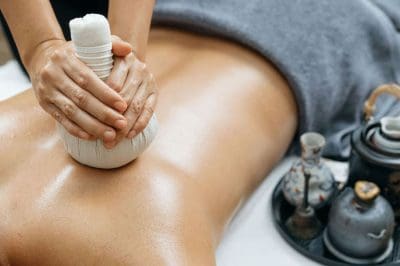
How To Reduce Stress
7 tips for health
70% to 90% of all doctor visits are for stress-related ailments. After reading this article you will understand why you need to reduce stress and the practical steps you can take to create better health for yourself.
This post has been organized into sections.
You can jump to any section by clicking on the links to the right by scrolling down.
Please leave a comment. We would love to know your thoughts.
What Is Stress?
A simple definition of stress is any environmental effect that causes your body to adjust and react. The stressor causes a change in the physical, mental and emotional state of the mind and body.
Stress can come in many forms, both good and bad, depending on your body, your environment, and even your mood.
Everyone has felt stress or anxiety at some point in their lives. It is a normal part of everyday life. Stress and anxiety are natural emotions, but too much can negatively impact your health. Studies show that stress is the major cause of health problems for 43% of adults1.
Too much stress and anxiety can negatively impact your physical health, your emotional state, your thoughts, and even how you behave. There is no part of the body that is immune to stress or anxiety. Symptoms vary from person to person, they can be mild or extremely pronounced, depending on how they have learned to deal with stress.
A shocking statistic is that between 70% to 90% of all doctor visits are for stress-related ailments1. That makes managing stress the top priority when it comes to creating better health. We all need to find ways to reduce stress and its effects.
Stress And The Brain
Your brain reacts when it perceives danger. When you are threatened, your brain releases chemicals such as cortisol, norepinephrine, and other stress hormones. These chemicals enhance our perception, speed and reflexes.
They also make our hearts beat faster so that more blood and oxygen can circulate through our bodies. This can cause headaches, nausea, and a low mood.
Stress can be harmful to the body if we are exposed to it for an extended period of time. Effects include a weakened immune system, weight gain and heart disease. Research also indicates a possible link between stress and structural damage to the hippocampus and impaired function of the prefrontal cortex4. Stress has also been linked to a higher risk of Alzheimer’s disease and dementia3.
To put it bluntly, chronic stress and anxiety can cause brain damage that increases the risk of depression, cognitive problems and memory loss.
The good news is that some or even most of the damage caused by anxiety and chronic stress may be temporary. The brain has the ability to repair itself. This means that there is a possibility of regrowth and regeneration.

How Your Body Responds To Stress
Stress and anxiety can have a serious impact on your physical health. These are the known risks to the major functions of the body:
An increase in heartbeat can cause palpitations and chest pains, as well as an increased risk for blood pressure problems and heart disease.
You may suffer from stomach aches, nausea and diarrhoea, as well as a loss of appetite and other digestive and intestinal issues. If you already have any of these problems, stress and anxiety can make the symptoms worse.
Stress or anxiety triggers your “flight or fight” response. Long-term stress and anxiety can mean your body is permanently in a state of over-excitation and never returns to normal function. This weakens your immune system and makes you more susceptible to viruses and illnesses2.
Anxiety can cause rapid, shallow breaths as your body tries to get oxygen to your muscles as it prepares to run or fight. You might experience an increase in heart rate and feel hot due to the increased blood flow. These are normal reactions designed to save your life in the event of danger. However, some people with respiratory issues will find that shallow breathing or increased heart rate can make their symptoms worse. These people should speak to their doctor in the event of an extended period of the stress response.
We need to reduce stress levels and actively improve our health to counter its effects or suffer the consequences of the above.
Chronic Acute Stress
Acute stress is a brief event such as a shock or accident after which hormone levels gradually return to normal. However, repeated triggering of the stress response causes a permanent increase in related stress hormones and a higher risk of developing health problems, including:
- Digestive issues (heartburn, flatulence, diarrhoea, constipation)
- Weight gain
- Elevated blood pressure
- Chest pain, heart disease
- Immune system problems
- Skin conditions
- Muscular pain (headaches, back pain, neck pain)
- Sleep disruption, insomnia
- Infertility
- Anxiety, depression
The harmful effects of stress become worse with the use of alcohol, tobacco or drugs. Instead of relieving the stress and returning the body to a relaxed state, these substances tend to keep the body permanently in a stressed state and cause more problems.

Protect Yourself From Stress
You can protect your brain and body by managing stress before it causes more serious or chronic health issues. Here are five tips on how to better manage stress and prevent some of the damaging effects on your health.
Here are five tips on how to better manage stress and prevent some of the damaging effects on your health.
Recognize your limits and set realistic expectations for yourself. Avoid taking on more than you can handle. Be proactive: indecision contributes to stress so make decisions and act on them.
Stress can cause difficulty sleeping, and lack of sleep makes stress even worse. Sleep deprivation makes parts of the brain that handle higher-order functions work less well. Healthy sleep habits can help. Avoid caffeine after midday, go to sleep and wake up at the same time each day, and try to create a relaxed sleeping environment.
By using strategies to manage your workload, you can reduce stress. Make a daily list of things you have to do. Prioritize them and set realistic goals for your day. This helps to reduce overwhelm. Organize your workspace and delegate where needed. And importantly, do not beat yourself up when things go wrong. Take a deep breath and try again.
If you are feeling stressed, seek help. Reaching out for help can make you more resilient and help you better manage stress. Earlier intervention can reduce the risk of disability later in life due to stress-related complications.
A life without stress is not only impossible but would also be boring. A certain amount of stress is beneficial for growth. While we can try to reduce stress, we can also learn to better understand its place in our lives and the consequences of the choices we make.
Not everyone is able to control stress through self-care and may need the help of a healthcare professional. This content is not intended to substitute for medical diagnosis or treatment.
Eat A Balanced Diet
A healthy balanced diet gives you the energy to deal with stressful situations. Some early research suggests that polyunsaturated fatty acids, including omega-3 fatty acids and certain foods like vegetables, help regulate cortisol levels5.
- Eat regularly. For your brain to perform at its best, it needs glucose. Keeping your blood glucose levels stable is easier if you eat regularly. According to studies, higher blood glucose levels are linked with improved academic performance.
- Don’t forget your unsaturated fatty acids. Omega-3 fatty oils found in walnuts flax seeds and fish oil have been linked to brain function. Deficiencies in these fatty acids can cause depression and/or anxiety.
A healthy balanced diet gives you mental resilience and the energy to deal with stressful situations.
- Probiotic foods include kefir, yoghurt with live active cultures, fermented vegetables, sauerkraut, tempeh, kombucha tea, kimchi, and miso.
- Eat your veggies. Leafy vegetables and fruits are high in minerals and vitamins like manganese, copper, zinc, and vitamin A. These vitamins and minerals neutralize harmful molecules produced by the body during stress.
- Add high-fibre foods. High fibre intake has also been linked to increased alertness and a reduced perception of stress. Include foods rich in fibre, like oatmeal, nuts, beans, fruits and vegetables in your diet6.
- Trade caffeine for more sleep. Caffeine increases blood pressure and can make you more anxious if stress is already present. Caffeine may make you feel more alert, but some studies suggest that caffeine can only compensate for sleep deprivation. Try sleeping more as a natural booster instead of taking caffeine.
- Stock up on healthy snacks. Prepare for a busy, stressful period by preparing quick and healthy snacks. When snacking, aim to combine two food groups. You can combine granola, yogurt and almonds, pretzels and carrots, hummus with carrots or cheese sticks with fruit.
A healthy balanced diet also improves productivity, heart health, strengthens bones, lowers the risk of cancer, keeps skin, teeth, and eyes healthy, and may even help you live longer.


Use Massage To Reduce Stress
When we’re stressed, our muscles tighten and our breathing becomes shallow. We have trouble concentrating and sleep can be affected. Massage measurably reduces stress and has been shown to shut down the stress response.
Even just 10 minutes of massage can activate the body’s system for overcoming stress8.
Fight or flight
It all begins with the sympathetic nervous system, the activation of which is called fight-or-flight and is how our bodies respond to stress. For everyone.
Stress is in effect a biochemical process within the human body. It starts with the release adrenaline, cortisol, and other hormones. These hormones are responsible for changes to our breathing and heart rate and the tightening of our muscles, among many other physical responses.
Massage can help reset stress symptoms by reducing stress hormones and activating the parasympathetic nervous system. This is the exact counter to fight-or-flight and is better known as the relaxation response.
Bodywork is an effective treatment for stress as it turns off fight-or-flight. It also activates the body’s own ability to recover and heal by improving blood and nutrient flow, reducing tension, and releasing endorphins.
Massage is more than relaxing
In addition to resetting your nervous system to reduce stress massage provides a huge boost to your mental and physical wellbeing. The health benefits of massage include:
- Relieves pain and tension for conditions such as fibromyalgia, arthritis, and lower back pain.
- Improves flexibility and range of motion by loosening up tight muscles and increasing range of motion, which can be especially beneficial for athletes and those who spend a lot of time sitting, like office workers.
- Stimulates lymphatic circulation and boosts the immune system, helping the body fight illness and disease.
- Reduces blood pressure, which can help to prevent heart disease and stroke.
- Massage therapy can help correct posture and prevent chronic pain and discomfort.
- Lowers cortisol levels and thereby can reduce stress and anxiety.
- Increases mental clarity and promotes better sleep.
Consider making massage a part of your health routine. Massage therapy is a natural, healthy and drug-free way to restore the body. It is one of the most effective ways that you can achieve wellness.
7 Tips For Stress Control
It is possible to lessen the impact of stress or counter its damaging effects both mentally and physically. Bodywork (such as massage, reflexology etc.), meditation and yoga are proven stress-busters. Diet also plays a significant part as it can either contribute to worsening health or create resilience. You need to choose for yourself what you can do and be able to assess its effectiveness.
Stress-eating is when we eat without realizing what we are eating or how much. This can lead to weight gain. Mindful eating can reduce stress by encouraging deep breaths and thoughtful food selections. Focus your attention on the meal and chew slowly and thoroughly. This will also improve digestion and increases your enjoyment of the meal. It can also help us recognize when we are not eating because of physical hunger, but more because of emotional turmoil.
Exercise helps lower stress hormones and blood pressure. Aerobic exercise like walking or dancing increases breathing and heart rate, allowing more oxygen to reach cells in the body. This helps to reduce tension in the muscles and heart.
Deep breathing or meditation techniques are recommended as a way to reduce stress.. Stress can cause rapid, shallow breathing as well as erratic thinking. When you are feeling stressed, take slow, deep breaths, paying attention to each inhale and exhale. This simple procedure can activate your parasympathetic system and help you relax.
Yoga, with its postures and controlled-breathing exercises, is a potent stress reliever. Designed to create a peaceful mind and body, yoga can help manage stress and anxiety. Use bodywork, particularly massage, to reduce stress. Massage activates the relaxation response, the body’s antidote to stress. Time out to care for your body is very beneficial for both mental and physical health.
Counselling or other kinds of social support can be a way to deal with overwhelm. Anxiety is often made worse by feelings of being alone. Talking through your feelings and connecting with others can be can help to reduce stress.
Periodic escapes from work pressures can reduce stress and increase productivity. They also decrease the risk of mental and physical illnesses associated with burnout. Use vacation time and personal free time or set aside just an hour per day to plan a fun activity at least once a week. This can include gardening or other hobby, reading, taking a hike in the woods, or cooking your favourite recipe.
Stress can increase alertness and delay sleep. It can also cause interrupted sleep. This prevents you from reaching the deeper stages of sleep, where the body grows and repairs tissue. REM sleep is particularly helpful for mood regulation and memory. Try to slow down 30 minutes before going to bed. Turn the lights down also. This will help you get 7-9 hours sleep per night.
If you choose to eat better, exercise more, and make other healthy changes to your lifestyle, you can dramatically reduce stress and your risk of serious illness and disease.
Summary
There is no such thing as a stress-free life. Stress and anxiety are natural emotions, but too much can negatively impact your health. Stress is the major cause of health problems for 43% of adults. This makes managing stress a top priority when it comes to creating better health.
The good news is that some or even most of the damage caused by anxiety and chronic stress may be temporary. This means that there is a possibility of regrowth and regeneration. You can also protect your brain and body by managing stress before it causes more serious or chronic health issues. Things you can do to control stress include regular exercise, mindful eating, meditation, counselling, good sleep hygiene and creating a better work-life balance.
A healthy balanced diet gives you the energy to deal with stressful situations. Try to eat regularly, avoid caffeine, eat your veggies and fruits and plenty of high-fibre food. You can prepare for a stressful period by stocking up on quick and healthy snacks.
Use bodywork, particularly massage, to reduce stress. Massage measurably reduces stress and has been shown to shut down the stress response. Massage therapy is a safe and effective way to promote relaxation, reduce pain and tension, and improve overall wellness. It offers many benefits for people of all ages and fitness levels.
References:
- Robinson, Jennifer MD, The Effects of Stress on Your Body, 10 December 2017, from Web MD.
- Nutrition and Immunity, 01 May 2020, from The Nutrition Source, Harvard T. H. Chan School of Nutrition.
- Protect your brain from stress, August 2018, from Harvard Health Publishing.
- Chronic stress, anxiety can damage the brain, increase risk of major psychiatric disorders, 21 January 2016, from Science Daily.
- Pietrangelo, Ann and Watson, Stephanie, The Effects of Stress on Your Body, 29 March 2020, from Healthline.
- Stress and Health, 1o May 2020, from The Nutrition Source, Harvard T. H. Chan School of Nutrition.
- Nutrition and Stress, 23 September 2021, from Campus Health, University of North Carolina.
- Scientific Reports, 08 September 2020, from Nature.
Sawadeeka!
I am Darunee (also Thai Nee) owner of the spa and VTCT qualified Thai massage therapist. It is my pleasure to welcome you to Thai Nee Spa.
We are a Thai Massage and Relaxation Therapy Centre based in the historic town of Kenilworth in Warwickshire.
- 07944 031 051
- info@thainee.spa
- 25 The Square, Kenilworth, Warwickshire CV8 1EF

Further Reading
The unique combination of herbs and heat works to relax and invigorate the body and mind. Soothes sore and tired muscles while boosting energy.
Traditional Thai massage is a healing practice using rhythmic pressing and stretching of the body with roots that go back to the time of the Buddha.



